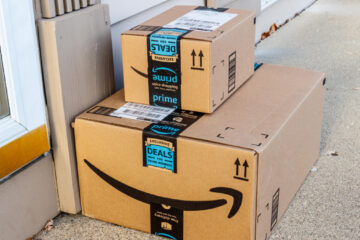When the United States’ Federal Trade Commission pushed Kroger to back out of its massive merger with Albertsons, it blew up the grocery space.
Had the two chains combined, they would have been a credible rival to the buying power of national players like Walmart. Target, and Costco. By not being allowed o join forces, the two companies were forced back into being regional grocery players — albeit very big ones.
Related: Bankrupt drugstore chain’s 1,200 leases go up for grabs
That cast a lot of rivals’ futures into doubt and made it clear that competing would require a business model other than being as big as the national brands.
Players like Trader Joe’s, Aldi, asnd Lidl can compete with unique merchandise and good pricing on limited merchandise, but the big boys would stay unchallenged. That forced a number of grocery chains to change their plans because they has made decisions for a world in which the Albertsons/Kroger conglomerate changed the overall market.
Albetsons itself did not take the Kroger decision well and sued its former potential partner for breach of contract.
Don’t miss the move: Subscribe to TheStreet’s free daily newsletter
“A successful merger between Albertsons and Kroger would have delivered meaningful benefits for America’s consumers, Kroger’s and Albertsons’ associates, and communities across the country. Rather than fulfill its contractual obligations to ensure that the merger succeeded, Kroger acted in its own financial self-interest, repeatedly providing insufficient divestiture proposals that ignored regulators’ concerns,” Albertsons’ Chief Policy Officer Tom Moriarty said in a press release.
Basically, Albertsons charged that Kroger should have been willing to sell more stores to make the merger happen.
Regulators thought Albertsons and Kroger would be too big
The FTC wanted Kroger, the controlling partner in the proposed merger, to divest itself of some properties in order to ensure competition in more markets. That’s an oddly narrow view of competition in a space that includes Walmart, Target, Amazon, and Costco, but the federal agency wanted to ensure more markets had multiple grocery options.
While this was all happening rivals were making plans to operate in the new grocery world. In 2023, after the Kroger and Albertsons merger deal had been signed, Aldi shared a massive plan for U.S. expansion.
As part of that deal it bought Winn-Dixie and Harveys Supermarket as part of a larger divestiture of Southeastern Grocers to various entities.
More Retail:
Walmart, Target, Costco make major 2025 announcementFormerly bankrupt retailer makes painful decision to close more storesTop investor takes firm stance on troubled retail brand
“Despite many retailers shuttering stores due to economic conditions, ALDI is doubling-down on expansion plans, supporting its position as one of the fastest-growing grocers in the country. The Southeast-focused acquisition includes approximately 400 Winn-Dixie and Harveys Supermarket locations across Alabama, Florida, Georgia, Louisiana and Mississippi,” it shared in a press release.
That deal fell apart in less than a year and a consortium repurchased parts of the Winn-Dixie and Harveys empire.
Winn-Dixie loses stores
As part of the transaction, Aldi will close 220 Winn-Dixie stores. That’s a mixed blessing for customers as the stores will convert into Aldi locations.
Some customers will see that as a positive while others will prefer the more full-service nature of Winn-Dixie to Aldi’s limited selection, lower price model. For fans of Winn-Dixie, it was a blow to lose more than half of the chain.
Still, that’s better than the original plan which included the closing of all Winn-Dixie and Harveys locations.
“A consortium of private investors, including SEG’s longstanding supply chain partner, C&S, acquired the Southeastern Grocers business from ALDI; Anthony Hucker, will serve as Chair, CEO and President. The consortium will immediately assume day-to-day operation of Winn-Dixie grocery and liquor stores and Harveys Supermarket, with prior agreed locations converting to ALDI through 2027,” it shared in a press release.
The new owners will continue to operate locations as they are being converted. Once they add the Aldi branding and reopen, control will be transferred. The process of closing the Winn-Dixie and Harveys locations has already resulted in about 50 closures and conversions.
Related: Costco members angered over food court price increase
Under the new deal, about 170 Winn-Dixie and Harveys locations will be saved.
In addition to approximately 170 grocery stores in Alabama, Georgia, Louisiana, Mississippi and Florida, the new company will also own the existing Winn-Dixie liquor store business.


